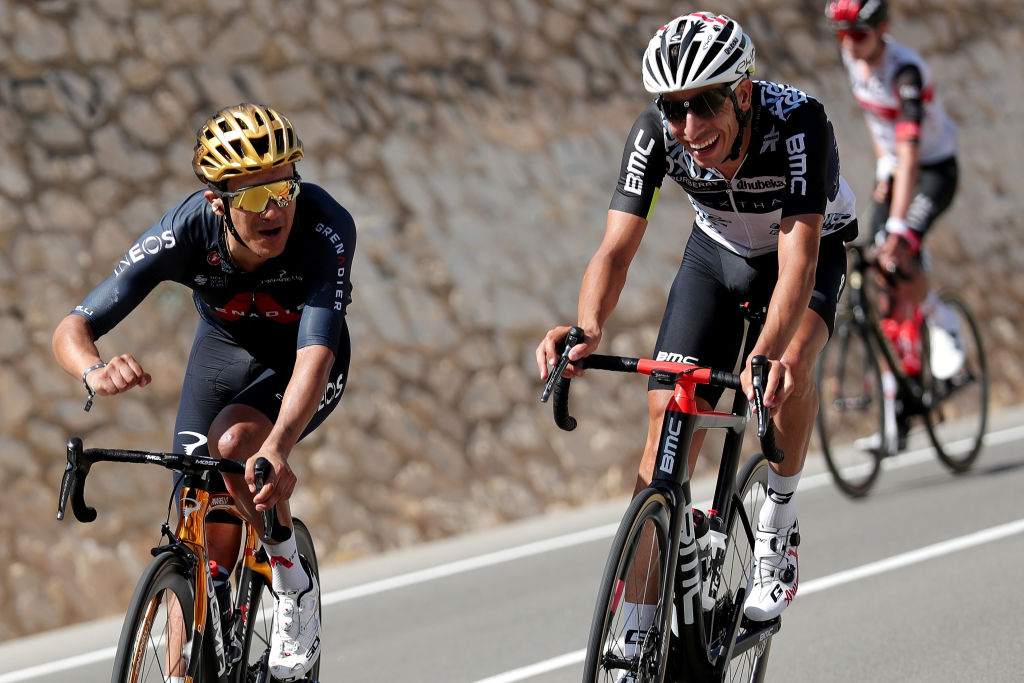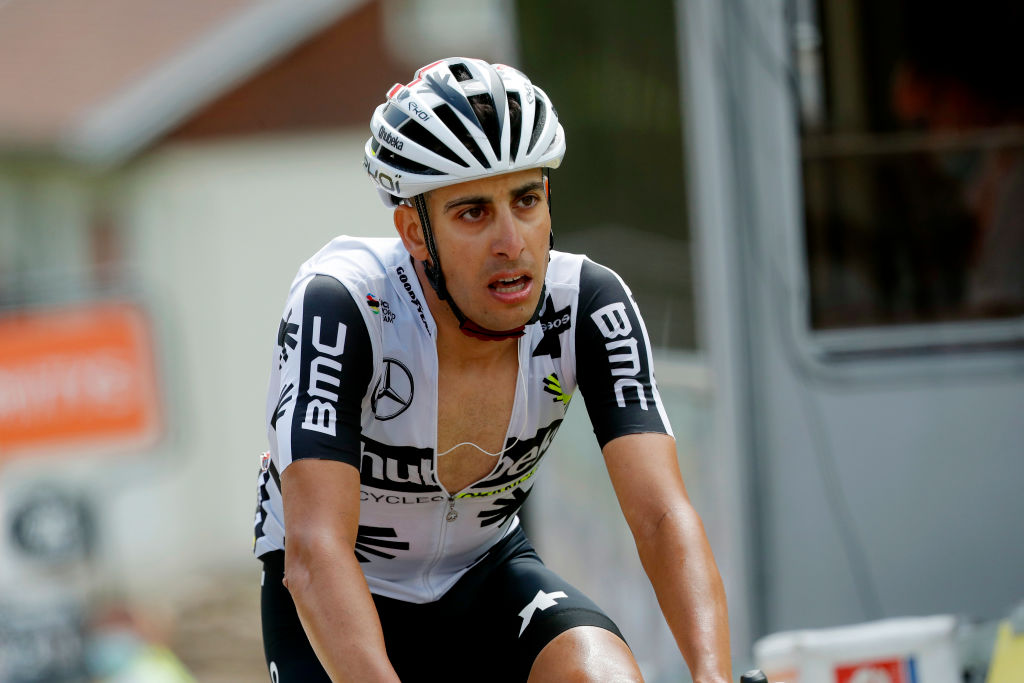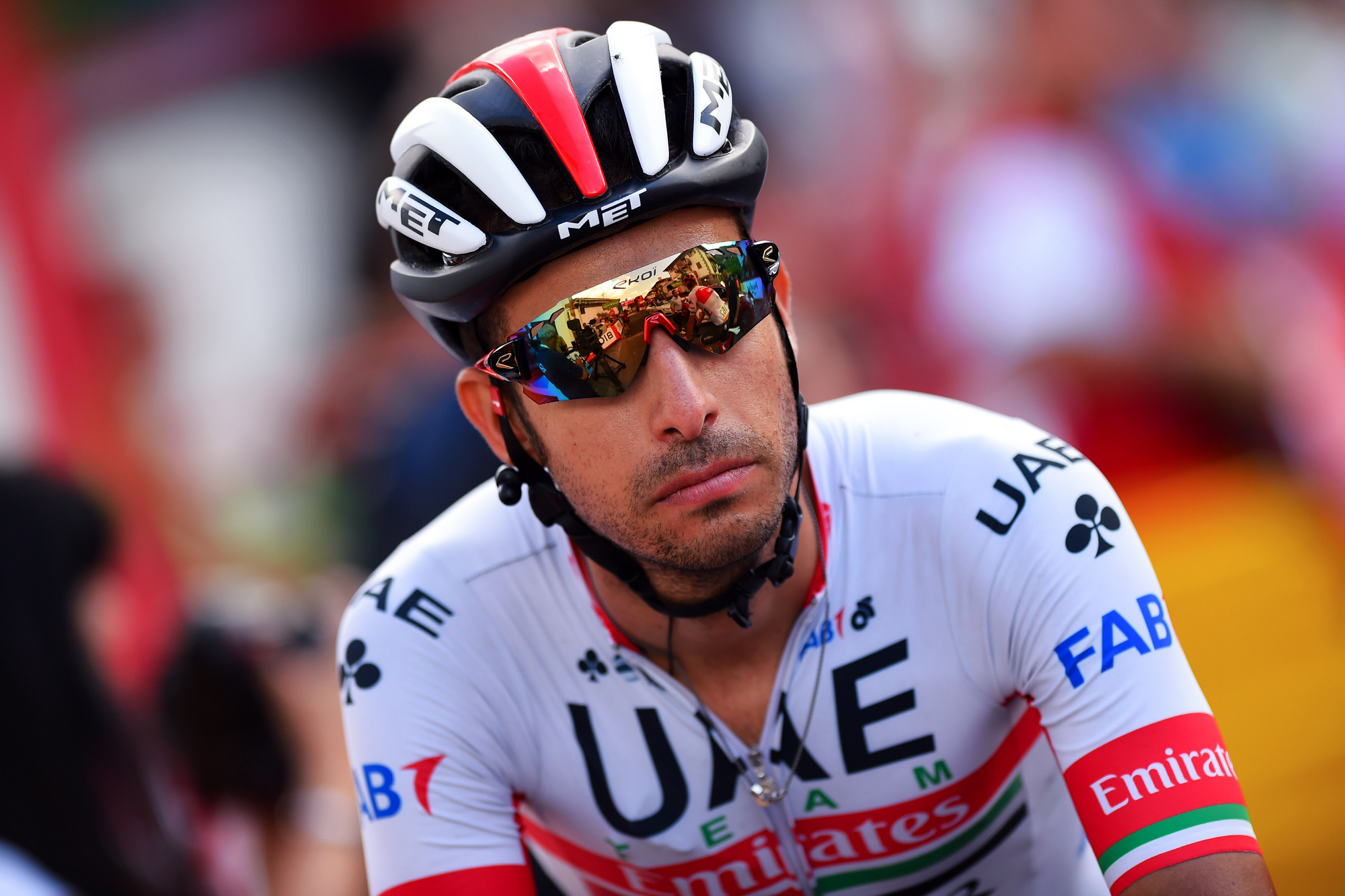Fabio Aru: I don't see retirement as a liberation, it's just the end of a chapter
Italian on the demands of the WorldTour and enjoying his final Vuelta a España

No, Fabio Aru isn't reconsidering. This Vuelta a España is the final act of his professional career and there will be no encore.
His run of form in recent weeks had appeared to signal a renaissance of sorts after some troubled years, but on the day before the Vuelta left Burgos, Aru announced that he was exiting the stage altogether.
Although Aru has continued to perform solidly across the opening week of this Vuelta, lying 14th overall on the first rest day, he evinces no nagging doubts about his decision to retire from cycling at the relatively early age of 31.
"Every day, I think more and more that this was the right choice," Aru tells Cyclingnews.
"I've got 21 stages here at the Vuelta, and that allows me to live a different emotion every day. Maybe stopping with a one-day race would have been different. Here, you have various situations on different days, whether it's the wind, the heat, or fighting with the strongest in the climbs. And that's all helping me to deal with this change of lifestyle."
Aru's retirement had been rumoured at several points over the past couple of years, most notably when he left UAE Team Emirates last winter after an injury-blighted stint. Even when he found a home at Qhubeka-NextHash for 2021, the whispers persisted, particularly when he withdrew from their Tour de France selection following a trying outing at the Italian national championships.
Even so, the timing of Aru's announcement was still a surprise, given that it came just as he was showing signs of the vim of old, with a dogged display at the low-key Sibiu Tour and a rather more surprising one at the altogether more competitive Vuelta a Burgos.
The latest race content, interviews, features, reviews and expert buying guides, direct to your inbox!
It is tempting to suggest that Aru felt liberated by his imminent retirement, though he politely dismisses the idea. Even so, the smiling, relaxed figure at this Vuelta contrasts heavily with the withdrawn young man of yesteryear, who sometimes gave the gloomy impression that he had been somehow doomed to a life of contending for Grand Tours.
"No, I don't see it as a liberation, I just see it as the end of a chapter," Aru says. "Obviously, this has been my life for more than 15 years and the bike will, in one way or another, remain a part of my life, because it's been my big passion.
"I'll come and see some races, maybe, so this will always remain a part of my life, but it's also the moment to devote more time to my family, to stay at home. I'm too much of a professional to accept doing this sport at only 90 per cent. I'll do it at 200 per cent or not at all."

No matter how this Vuelta finishes, Aru's career will be remembered as one of two distinct halves. After turning professional at Astana in late 2012, glory arrived almost immediately. He finished on the podium of the Giro d'Italia in 2014 and again in 2015, before winning that year's Vuelta a España by snatching red from Tom Dumoulin on the penultimate day.
Aru briefly wore yellow at the 2017 Tour de France and, for a couple of dizzying days, he even looked like he might topple Chris Froome and Team Sky. He ultimately slipped to 5th overall, but his star still looked in the ascendant. Instead, that July marked the peak, and his stage win at La Planche des Belles Filles was his last victory of any description.
His three-year spell at UAE Team Emirates, by contrast, was plagued by difficulties. After a subdued debut season, his 2019 campaign was ruined by iliac artery surgery and Epstein-Barr syndrome.
By last year, Tadej Pogačar had usurped him at the centre of the team's planning and Aru's confidence – and career – seemed to have crumbled. His final race at the team was the 2020 Tour, which he abandoned in distress on stage 9. Pogačar went on to win the Tour. The future was his. Aru, by contrast, was last year's man.
"They were difficult years and I suffered a lot but they also taught me to be in the world, because life isn't only success, there are also setbacks, and you have to overcome them," Aru says.
"I became a better person compared to before. Obviously, I would have preferred to live through fewer frustrations than I did, but that didn't affect my decision to retire.
"In the end, it's that I left Sardinia many years ago, when I was very young, and my family is still there. There are a lot of things linked to one another. And I think for every one of us, there comes a time when you want to change something and start a new chapter. For me, that moment has come now, and I'm happy with my choice."
Criticism
Aru wasn't completely forgotten by UAE Team Emirates management during last year's Tour. Team consultant Giuseppe Saronni, whose own, more glittering career still followed a strikingly similar trajectory to Aru's, issued scathing criticism of the Sardinian on RAI television after his abandon.
Saronni was perhaps the most publicly forthright critic, but he was hardly alone in reassessing Aru's qualities in recent years.
"Honestly, yes, the criticism hurt me," Aru says. "External criticism didn't affect me, but maybe when people who were close to me when I was at my peak – in Italian, we'd say leccare il culo ['arse-licking' – ed] – attacked me straight away when I had problems, it made me understand who was really close to me and who wasn't."
Aru's early retirement also comes at a time when the demands at WorldTour level – and below – are becoming ever more onerous. That burden, mental as much as physical, appears to be prompting riders to step away from the sport, be it temporarily in the case of Tom Dumoulin, or permanently in the case of Aru.
Indeed, it could be argued that Aru has never known any other kind of cycling. When he stepped up to the WorldTour with Astana he was immediately earmarked for Grand Tours and hot-housed accordingly. Rather than compete widely and learn from his mistakes, the young Aru was already cloistered in training camps and preparing for the Giro on a very limited diet of racing days from his very first seasons.
"I've always done training camps and I've always gone to altitude," he said. "But there have definitely been innovations in cycling. For example, the focus on nutrition has been interesting, but sometimes it's been too much. When you're talking about things like weighing out your food and paying the maximum attention to everything, it gets a bit much. It sort of ruins what is simply sport – getting on a bike and pressing hard on the pedals. There's a bit too much control, and that weighs heavily."

With every team and rider now straining for every available gain, marginal or otherwise, it seems difficult to imagine the sport undergoing a reset. It remains to be seen if the emerging generation of young champions will have the bandwidth to withstand such a lifestyle for a decade or more, but it seems unlikely that Aru will be the last rider to step away from the sport at such a young age.
"I don't think it's possible to go backwards because every sport has reached such a level of professionalism and attention to the detail," Aru says.
"The details are important, of course, and I'm the first person to pay close attention to them myself. But when it's excessive, that's what ruins things a bit."
On Sunday afternoon, Aru climbed with the favourites at the base of the Alto de Velefique, though he was distanced as the group split under the impetus first of Adam Yates and then of maillot rojo Primož Roglič. Aru settled into a race of his own thereafter, riding tempo towards the summit in the company of Aleksandr Vlasov to place 16th on the stage, 2:43 behind Roglič.
Unlike those pressured days at Astana and UAE Team Emirates, the final result seems more like a matter of personal satisfaction at this valedictory Vuelta.
"Grand Tours are like that," Aru had said after conceding a few seconds at Balón de Alicante earlier in the week. "One day you feel good, and the next day a bit less, but we'll keep smiling."

Barry Ryan was Head of Features at Cyclingnews. He has covered professional cycling since 2010, reporting from the Tour de France, Giro d’Italia and events from Argentina to Japan. His writing has appeared in The Independent, Procycling and Cycling Plus. He is the author of The Ascent: Sean Kelly, Stephen Roche and the Rise of Irish Cycling’s Golden Generation, published by Gill Books.